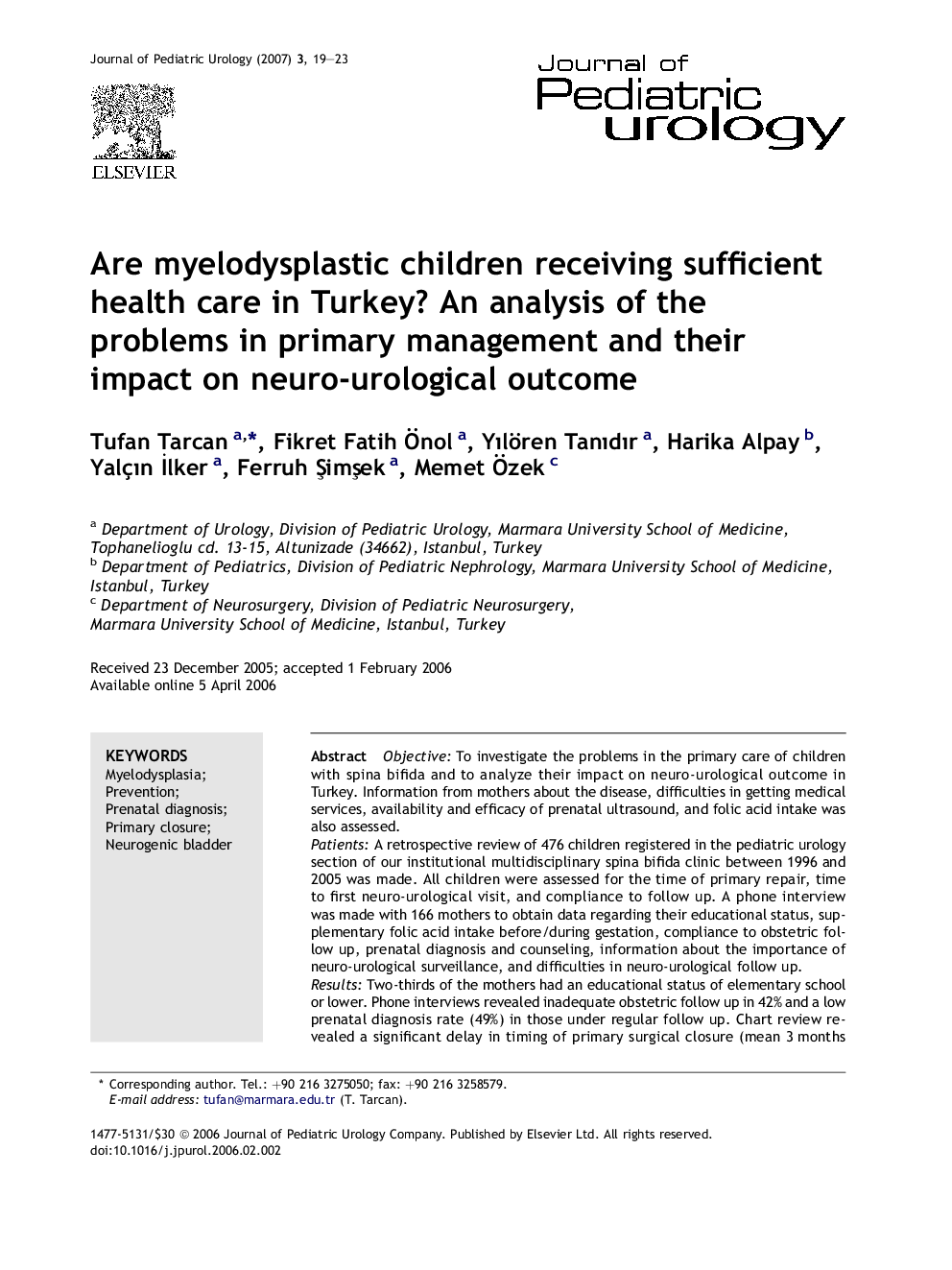| Article ID | Journal | Published Year | Pages | File Type |
|---|---|---|---|---|
| 4163748 | Journal of Pediatric Urology | 2007 | 5 Pages |
ObjectiveTo investigate the problems in the primary care of children with spina bifida and to analyze their impact on neuro-urological outcome in Turkey. Information from mothers about the disease, difficulties in getting medical services, availability and efficacy of prenatal ultrasound, and folic acid intake was also assessed.PatientsA retrospective review of 476 children registered in the pediatric urology section of our institutional multidisciplinary spina bifida clinic between 1996 and 2005 was made. All children were assessed for the time of primary repair, time to first neuro-urological visit, and compliance to follow up. A phone interview was made with 166 mothers to obtain data regarding their educational status, supplementary folic acid intake before/during gestation, compliance to obstetric follow up, prenatal diagnosis and counseling, information about the importance of neuro-urological surveillance, and difficulties in neuro-urological follow up.ResultsTwo-thirds of the mothers had an educational status of elementary school or lower. Phone interviews revealed inadequate obstetric follow up in 42% and a low prenatal diagnosis rate (49%) in those under regular follow up. Chart review revealed a significant delay in timing of primary surgical closure (mean 3 months and 2.9 years for open and closed lesions, respectively) and first neuro-urological follow-up visit (mean 1.8 years and 9.7 months after primary repair for open and occult lesions, respectively). Reasons for delayed closure were misguided advice of the nurse/midwife involved in delivery and inability to obtain tertiary health care. Socioeconomic inadequacy of the families and inefficacy of the health insurance system were the most important factors impairing follow up.ConclusionsSerious problems exist in the prevention, prenatal diagnosis and primary management of children with myelodysplasia in Turkey. As a consequence, neuro-urological follow up starts relatively late, which adversely affects the urological prognosis.
